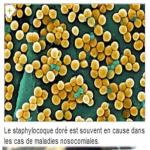Fats and cholesterol
The question of cholesterol is very complex and divides many naturalists. Good, bad, useful or not. But nothing is useless and it is the dose and the quality of cholesterol that counts. Cholesterol participates in the formation of bile salts and vitamin D. Some foods are very rich in it: offal, seafood, eggs, etc. Independently of the external contribution by foods rich in cholesterol, it can also be formed in the organism, at the expense of certain carbohydrates (starch) in intense period of nervousness. Anger has never built anything, but production of toxins (adrenaline and cholesterol rush) and finally, disease (ulcer, diabetes, hypertension, depression, madness, asthma, etc.). Everyone must learn to deal with negative emotions. This is another section.
The regulation of cholesterol metabolism depends on its combinations with fatty acids provided by food. The stability of its combinations depends on the propensity of cholesterol to accumulate, to participate in the formation of atheromas (deposit of fats or waste), affecting the interior tunics of the blood vessels. Excess cholesterol can therefore be detrimental to blood circulation by making the vessels hard, rigid, and even causing internal alterations.
The higher the consumption of saturated fatty acids, the more the cholesterol that enters into combination with them is stable, heavy, massive and difficult to dissociate. In contrast, the combination between cholesterol and unsaturated fatty acids is easy to dissociate. This promotes the vehicular role of cholesterol, then its destruction.
Cholesterol levels are lowered when animal fats are replaced by vegetable fats rich in unsaturated fatty acids (75% walnut oil, 60% sunflower oil, 55% corn oil, 50% soybean oil, 25% peanut oil, olives 15%). The opposite is obtained with fats rich in saturated fatty acids (animal fats, cooked fats, margarine, etc.). In conclusion we must prefer the vegetable oils rich in unsaturated fatty substances mentioned above.
Ajouter un commentaire
 Anglais
Anglais
 Espagnol
Espagnol
 Français
Français





